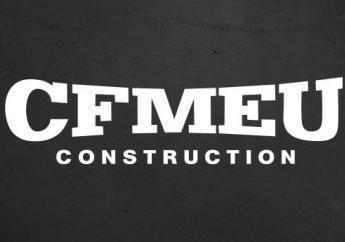Published: 2 Oct 2020

The Australian Financial Review ran an opinion piece by Damien Tudehope, NSW Minister for Finance and Small Business, titled "Union extortion ransoms jobs".
The article below is a response from Dave Noonan, CFMEU National Construction Secretary.
As an experience criminal lawyer, who has represented clients accused of very serious crimes, Damien Tudehope should know better than to lightly throw around accusations such as “extortion”. Indeed, you’d hope he understands the law around these matters more clearly than his apparent understanding of how wage growth and productivity works in the construction industry.
Far be it from me to explain how productivity works to the NSW Minister for Finance and Small Business, but it is apparent that Mr Tudehope has either a poor understanding of the economics of the construction industry or is prepared to misrepresent it to serve the interests of the MBA and some developers.
His comments also betray a lack of understanding of the challenges and opportunities the industry faces in the post-Covid19 world and come alarmingly close to talking down an industry that is one of the most powerful drivers of the NSW and Australian economies.
And is he seriously suggesting that wage cuts are a pathway out of economic downturn?
This is flat earth economics. The reality is that healthy wages and good job security are the best path back to a healthy economy. Well-paid workers in viable industries buy goods and services, supporting more jobs and generating tax revenue to support people who are relying on government assistance. Hardly rocket science.
The people of NSW would be better served if Mr Tudehope respected and reflected the interests of the construction industry more broadly than the MBA and the small cohort of employers they represent.
In reality, the hundreds of agreements the NSW union has already negotiated reflect an industry in which many employers are prepared to acknowledge and reward the skill and hard work of their workforce.
It may come as a shock to doctrinaire purists in the Liberal Party like Mr Tudehope but unions and employers are often closely aligned when it comes to acting in the best interests of their industry and their workforce.
During the current pandemic, the union worked closely with employers to keep workers safe and sites open. We didn’t see Mr Tudehope down at Barangaroo when 12 workers tested positive, working with employers to ensure safe work practices, effective contact tracing and a speedy return to work. That was the CFMEU working with the head contractor and subbies to keep the job open and workers safe.
At the darkest moments as the pandemic unfolded it was not Mr Tudehope visiting sites around the state to develop the protocols around hygiene control, social distancing and health monitoring that enabled the NSW construction industry to remain open. It was the CFMEU, our members, and employers working together.
And it is certainly not Damien Tudehope working through the night on a sixty-hour week to get a job finished. That is the men and women who build our nation’s cities, towns and critical infrastructure and who deserve to be recompensed fairly for their labour.
International benchmarks reveal Sydney is a highly attractive city to build, and Arcadis have the NSW industry at number 60 in the world for cost. It is significantly more cost competitive to build in Sydney than it is in a host of international construction markets and Sydney’s construction wages are very competitive compared to other Australian capitals.
One of the reasons for this is construction workers in New South Wales are amongst the most productive in the world, as noted in international comparison studies such as that conducted the McKinsey Group. Indeed McKinsey, not exactly the most pro-union outfit on the planet, notes that the high level of union coverage in the local industry is a significant driver of our high level of productivity.
Contrary to the assertions made by Mr Tudehope, the EBAs the union has reached with a growing number of NSW employers contain a sustainable basis for productivity and wage growth.
The Minister would better off listening to more knowledgeable participants in the industry than the NSW MBA.
Tudehope’s intervention comes after the NSW Master Builders and their head, Brian Seidler, tried to impose their model agreement on workers at Richard Crookes Constructions. This was comprehensively rejected by the workers.
This substandard agreement would have effectively resulted in lower real wages and poorer conditions for workers. Across NSW the MBA’s regressive model agreement is rightly seen as a step backward for a modern construction industry whose strength in the coming years will be vital to the economy and to the national interest.
There’s nothing wrong with a politician spending his life as a lawyer and legislator.
It’s healthy that he talks to employers, though he should take any advice from the political zealots at the MBA with a grain of salt.
But has Tudehope ever asked a construction worker about sixty-hour weeks in a high-risk and insecure industry?
Or is he just talking to the MBA and a handful of big property developers?
And would he be prepared to tell NSW construction workers to their face that after working through the stress of a global pandemic that shutdown entire sectors of our economy, the reward they deserve is lower wages and poorer conditions?
If Mr Tudehope wants to act as a carnival spruiker for his corporate suite mates, that’s his business. But the hard-working men and women in the NSW construction industry whose taxes pay his wage deserve a higher calibre of representation in their Minister for Finance and Small Business.
They might well be entitled to inquire into his own productivity in the role and just whose interests he serves.